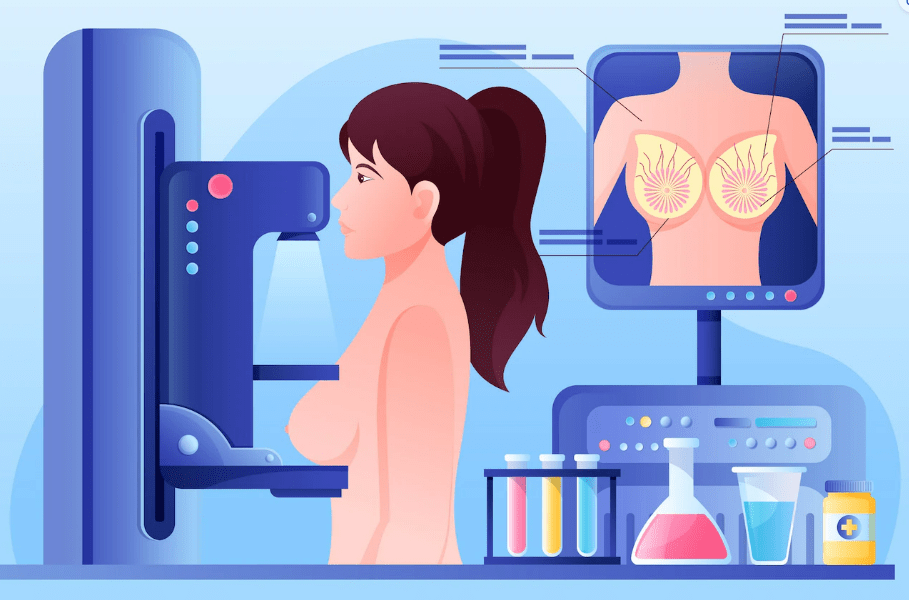One in twenty-eight Indian women is likely to develop breast cancer during her lifetime. In rural and urban India, the incidence of breast cancer is rising.
Despite the alarming statistics, you can take steps to lower your risk of getting breast cancer and beat it with early detection and treatment.
If you are worried about getting breast cancer, you may wonder if there are any steps you can take to lessen your risk. Certain risk factors, like family medical history, are unavoidable. You can reduce your risk by altering your lifestyle, though.
Given that breast cancer often manifests as signs and symptoms, paying attention to your body and noting any unusual warning signs is crucial. There may be other causes of your symptoms besides cancer. Therefore, speaking with your physician is the only way to be sure.
Dr. Garvit Chitkara is a well-qualified and seasoned breast cancer surgeon in Mumbai. He has over 15+ years of experience in general practice and more than ten years of experience as a breast oncology surgeon in Mumbai.
Moreover, Dr. Garvit Chitkara is highly skilled in oncoplastic breast surgeries. He strives to offer the most effective and safe breast cancer surgery in Mumbai and provides comprehensive breast cancer care.
Now, let’s know,
Who is at Risk of Developing Breast Cancer?
Your family medical history
Your risk of developing breast cancer is higher if your family has a medical history of the condition. Since 5 to 10% of breast cancers are hereditary, your risk increases if a first-degree relative, such as your mother or sister, has the disease.
The majority of first- and second-degree relatives of patients with inherited cancer-causing genetic mutations have breast cancer or other cancers linked to the mutation.
Your reproductive history
Your risk of breast cancer will be higher than an average individual if you started menstruating before age 12, had your first child later than 30, or went into menopause later than 55.
Lifestyle
Your weight and eating habits also influence your risk. Breast cancer risk can be raised by being overweight and irregular exercising, particularly after menopause. Similarly, a diet heavy in alcohol, animal fat, and red meat can increase that risk.
On the other hand, foods high in selenium, vitamins A, C, and E, and omega-3 fatty acids from fish can all help ward off the disease.
Exposure to hormones
The use of hormone replacement therapy (HRT) or oral contraceptives for extended periods increases the risk. Discuss the advantages and disadvantages of hormone therapy with your doctor before making a decision.
How to Reduce the Risk of Breast Cancer?
1. Self-examination of the breasts

2. Breast cancer screening tests

3. Choosing a healthy lifestyle
4. Genetic counselling and testing
Women at high risk for breast cancer should discuss additional preventive measures with their oncologist or breast cancer surgeon in Mumbai. Options include prophylactic mastectomy or hormonal therapy.
5. Preventive prophylactic mastectomy

For women with a high risk of breast cancer, bilateral mastectomy or removing both breasts before cancer is found are options. As a result, the risk of developing breast cancer is reduced by 90 to 95 percent. Simultaneous bilateral breast reconstruction is often done to reduce the patient’s socio-psychological stress.
In India, breast cancer is one of the most common diseases. Breast cancer risk factors are numerous, and the only way to lower your risk is to be aware of them. Getting a mammogram every year is among the most crucial things you can do. Perform a monthly self-exam to look for lumps or other abnormalities as another preventive measure.
Additionally, it is crucial to discuss with your doctor any symptoms you may be having that could be signs of breast cancer so that they can be treated as soon as possible.

